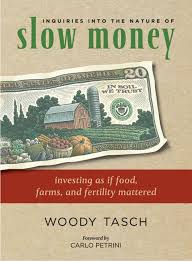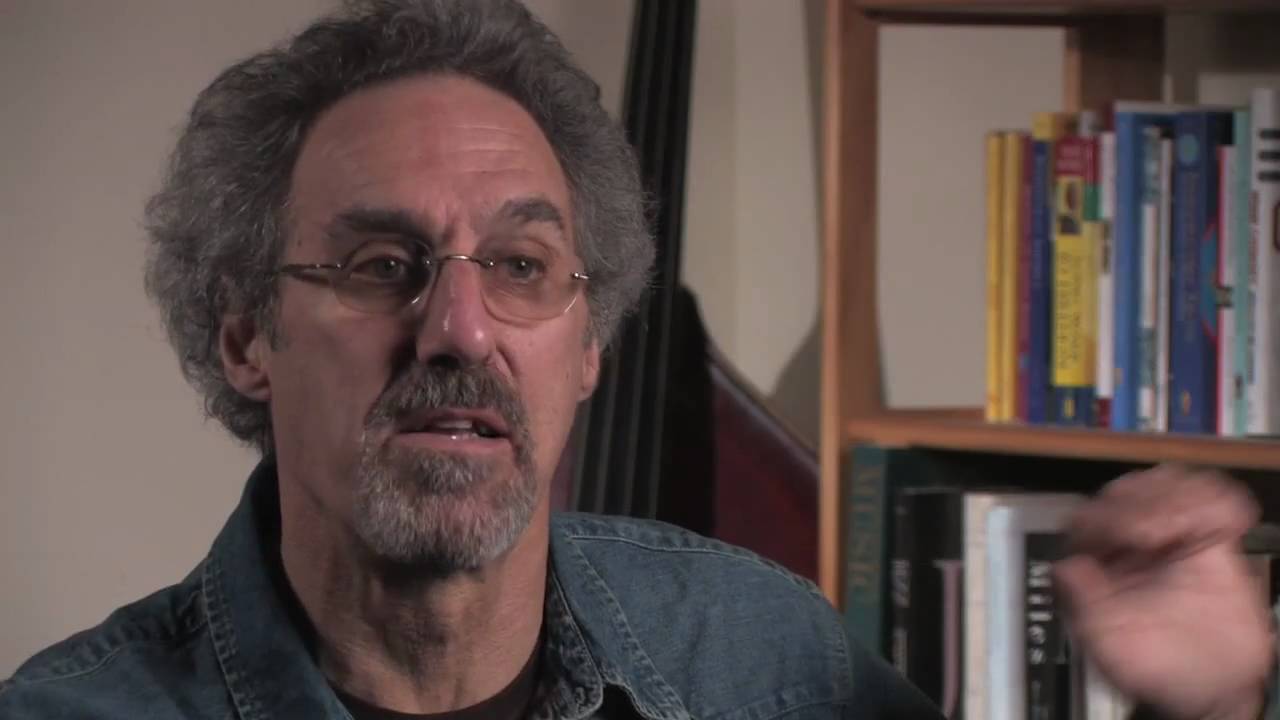Hi.
Woody Tasch, the founder of Slow Money, recently read this thread and provided this reply which he asked me to post.
Best,
Chris
I am extremely honored to have Chris’ hat thrown into the Slow Money ring. And very happy to see all the conversation it elicited.
As that conversation indicated, the idea of slow money sparks a deep discussion about the nature not just of food systems, but of the economy, corporations, fiat currency, profits, growth.
That’s why my book is called Inquiries in to the Nature of Slow Money. As in: if we don’t ask the right questions, we will only find ourselves manipulating the wrong data and formulating the wrong answers. Slow Money is, first, a new inquiry into the nature of money, looked at through the lens of the soil and principles of fertility and diversity–economic, cultural and biological diversity. In a culture that is all about the deal, all about the transaction and the portfolio, all about ready, fire, aim, nothing is more important than taking the time to think differently. Most of what passes for social investing today is trapped in the old benchmarks, the old measures of success, so structural change remains elusive. We must dare to think differently, in fundamentally different terms, about money and the soil, or we risk doing the same thing over and over again, hoping for a different outcome.
So, as someone who has been working in venture capital, social investing and philanthropy for 30 years, I do not see the Slow Money Principles as just “a petition.” Or as “words” that do not equal “action.” They are the beginning of a fundamental shift in economic thinking, underpinning a whole generation of action in the decades to come. This is a generational shift we are about and “well begun” depends upon a new set of values that will inform a qualitatively different kind of investing.
Over the last 18 months, I’ve interacted with thousands of folks in scores of places, and it is wonderful to see so many people eager to: 1) acknowledge how broken our current system is; and, 2) start doing something about it. Which in our case means: investing in small food enterprises.
As to the “what are they actually doing” questions that a few of you asked, here’s an overview.
First, we are building national and regional networks of people who want to put their money into local food systems. In the lingo of triple bottom line, we can call this “building social capital.” Real relationships between folks who share values and are committed to investing directly in the place in which they live. This process is well underway. We’ve got Slow Money networks emerging in more than a dozen locales, including Austin, Boston, Madison, Santa Fe, Seattle, the Bay Area and the Research Triangle. Reports from folks in these regions can be read in our first newsletter, which came out in March.
Second, we are convening national and regional gatherings at which small food enterprises connect with funders. At our first national gathering last fall, 450 people came together from 34 states and six countries. From the group of 25 presenting small food enterprises, four raised a total of $260,000–a small but important beginning. Last year, we also hosted three regional Slow Money Institutes, in Bellingham, WA, Hudson, NY and Madison, WI.
Third, we are building our website over time–it’s still in its infancy–into a robust portal that offers options for folks who want to find places to put their money into small food enterprises and local food systems.
Fourth, we are launching, at our upcoming Vermont gathering, the Soil Trust. The first “grassroots, philanthropic nurture capital fund.” Say what??? A pool of donations, of any size, that will be used as seed capital to build local food investing intermediaries around the country. Will one million Americans contribute $25 per annum to the Soil Trust? We shall see. . .If this begins to scale, it will mark a major innovation in philanthropy and social investing. We will use this as guarantees, seed capital or co-investment capital, to help build local intermediaries and prime the pump of local investment around the country.
(Now, the Soil Trust is sufficiently new, and sufficiently “integral” along the boundaries of investing and philanthropy that you have to pause to think about it. If we are about “putting back into the soil more than we take out,” what could be more natural than a pool of philanthropic dollars that is INVESTED in small food enterprises? That is, all returns stay in the fund to be reinvested. I believe this is the future of philanthropy: philanthropy as investing, rather than as grantmaking. This is a big topic, too big to be explored further here. Stay tuned.)
Fifth, we are developing new investment products and funds, on the for-profit investment side. Think: Slow Munis, municipal bonds dedicated to local food systems. We are early in this process, but indications are promising. Think: Calvert Foundation Slow Money Notes. They don’t exist yet, but we are exploring such possibilities with our friends at Calvert.
All of this points us in the direction of our long-term goal: a million investors putting 1% of their assets into local food systems within a decade. It’s funny how some people view this goal as insufficiently audacious. Only a million folks? Only 1%? Well, that would be billions of dollars per annum, and if we can get this ball rolling, no one will be happier than I to see it go further or. . .faster. . .
In the meantime, let’s get a lot us facing in the same direction. We’ve got around 11,000 signatories for the Principles. We’ve got around 1,100 members of the Slow Money Alliance. And we’re just announcing the Soil Trust.
Join us.
And let’s begin fixing the economy from the ground up.
In friendship,
Woody Tasch
Founder, Slow Money

